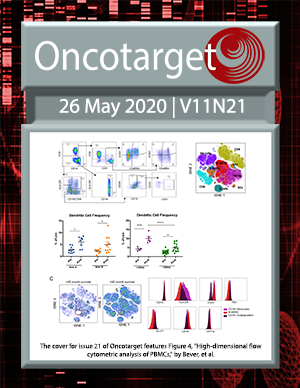Clinical Trial
PNOC002: Pilot Efficacy Study of vemurafenib, an oral inhibitor of BRAFV600E, in Children with Recurrent/Refractory BRAFV600E-mutant gliomas
PNOC002 (phase 1) Study Publication
PNOC002 is now closed, and clinical trial results are now available as published in the Oncotarget in May 2020.
viewable here:
This trial is testing the drug vemurafenib (also called PLX4032) in children with pediatric astrocytomas that have the BRAFV600E mutation. Vemurafenib works by blocking the activity of BRAF, a key protein in the RAS/RAF/MAPK pathway that is overactive in these tumors. In normal cells, the molecules in this pathway deliver signals to one another that regulate important processes such as cell proliferation, natural cell death (also called apoptosis) and cell growth. A significant fraction of pediatric astrocytomas contain the BRAFV600E mutation, and this mutation is thought to be vital to tumor maintenance.
Subsequently, the study will attempt to document vemurafenib drug levels within surgically resected tumor samples. If drug levels are found to be meet our goals, an expanded cohort will be opened to measure efficacy of this drug in children with recurrent tumors.
PRIMARY OBJECTIVES
The primary objectives of this study are:
- To characterize the pharmacokinetics of vemurafenib in pediatric patients
- During the pilot efficacy study, to document antitumor activity of treatment with vemurafenib, as measured by objective responses.
SECONDARY OBJECTIVES
- To document intra-tumoral drug concentration in patients treated with vemurafenib and compare them to serum drug levels pre-surgery
- To describe progression-free survival of patients treated on vemurafenib
Please note, this study has closed to accrual and is no longer accepting patients.
Funding is provided by Genentech.
This trial is testing the drug vemurafenib (also called PLX4032) in children with pediatric astrocytomas that have the BRAFV600E mutation. Vemurafenib works by blocking the activity of BRAF, a key protein in the RAS/RAF/MAPK pathway that is overactive in these tumors. In normal cells, the molecules in this pathway deliver signals to one another that regulate important processes such as cell proliferation, natural cell death (also called apoptosis) and cell growth. A significant fraction of pediatric astrocytomas contain the BRAFV600E mutation, and this mutation is thought to be vital to tumor maintenance.
Subsequently, the study will attempt to document vemurafenib drug levels within surgically resected tumor samples. If drug levels are found to be meet our goals, an expanded cohort will be opened to measure efficacy of this drug in children with recurrent tumors.
PRIMARY OBJECTIVES
The primary objectives of this study are:
- To characterize the pharmacokinetics of vemurafenib in pediatric patients
- During the pilot efficacy study, to document antitumor activity of treatment with vemurafenib, as measured by objective responses.
SECONDARY OBJECTIVES
- To document intra-tumoral drug concentration in patients treated with vemurafenib and compare them to serum drug levels pre-surgery
- To describe progression-free survival of patients treated on vemurafenib
Please note, this study has closed to accrual and is no longer accepting patients.
Funding is provided by Genentech.
Sites Offering This Trial
- CHICAGO, IL Ann & Robert H. Lurie Children’s Hospital of Chicago
- LOS ANGELES, CA Children’s Hospital Los Angeles
- WASHINGTON, DC Children’s National Hospital
- BOSTON, MA Dana-Farber/Boston Children’s Cancer and Blood Disorders Center
- BALTIMORE, MD Johns Hopkins Hospital
- COLUMBUS, OH Nationwide Children’s Hospital
- MEMPHIS, TN St. Jude Children’s Research Hospital
- ST. LOUIS, MO St. Louis Children’s Hospital
- SEATTLE, WA Seattle Children’s Hospital
- PHILADELPHIA, PA The Children’s Hospital of Philadelphia
- SAN DIEGO, CA University of California, San Diego Rady Children’s Hospital
- San Francisco, CA UCSF Benioff Children’s Hospitals
- GAINESVILLE, FL University of Florida Shands Children’s Hospital
- SALT LAKE CITY, UT University of Utah
- LOS ANGELES, CA University of California, Los Angeles*
How to Enroll
If you believe your child or patient is eligible for this trial, contact the closest participating site or email us for more information.
